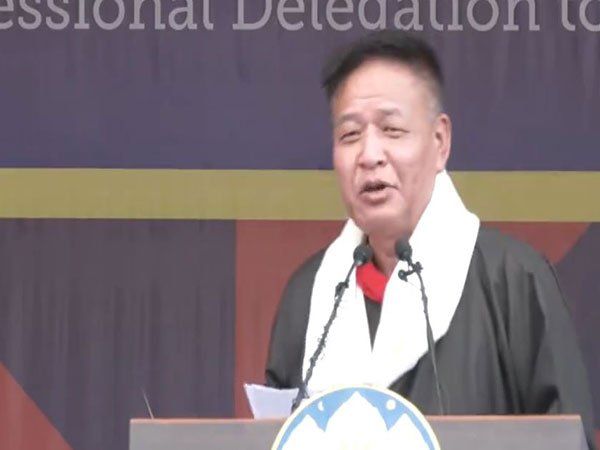Tibetan Leader Voices Regret for Dalai Lama's Restricted Birthday Celebrations
Penpa Tsering Sikyong, President of the Central Tibetan Administration, regrets that Tibetans cannot celebrate the Dalai Lama's 89th birthday in his birthplace due to Chinese restrictions. He urges unity among Tibetans to uphold the Tibetan issue. The Dalai Lama is recovering from knee surgery in the US.

- Country:
- India
The President of the Central Tibetan Administration of the government-in-exile, Penpa Tsering Sikyong, expressed sorrow over the inability of Tibetans to celebrate the Dalai Lama's 89th birthday on July 6 in his birthplace due to China's stringent restrictions.
In his message, Sikyong highlighted the irony that while Tibetans in exile can celebrate freely, those inside Tibet remain bound by Chinese-imposed limitations. 'It is a joyous occasion for us who have the freedom to celebrate his birthday, but for Tibetans inside, of course, they still have to be bound by the restrictions,' he conveyed.
The 14th Dalai Lama, revered by Tibetans as Gyalwa Rinpoche, serves as the highest spiritual leader and head of Tibet. China has tightened its social media control to prevent any online celebration of the Dalai Lama's birthday.
Sikyong urged global unity among Tibetans to bolster the Dalai Lama's mission and maintain the Tibetan issue's global awareness. 'Dalai Lama is going to be 89 this year. To all Tibetans inside and outside, I urge you to be the eyes and hands of the Dalai Lama,' he said.
Currently, the Dalai Lama is in the United States recovering from successful knee surgery. Sikyong confirmed that his health is improving and he is undergoing recovery and physiotherapy.
Additionally, the US is awaiting President Biden's signature on the 'Tibet Resolve Act', reflecting increased American support. Discussing India's policy towards China, Sikyong emphasized the need for strategic reevaluation based on evolving geopolitical realities.
He also questioned China's claims of Tibet being a 'socialist paradise.' 'If Tibet is truly a socialist paradise, why doesn't China allow people to see for themselves?' he asked.
Sikyong warned of the slow cultural death Tibetans face under Chinese rule, stressing the deep cultural connections between Tibet and India.
'Tibetan Buddhism originated in India, and we see ourselves as an extension of Indian culture,' he explained, highlighting the historical translation of Sanskrit and Pali texts into Tibetan. 'China's efforts to sinicize Tibetan culture pose a threat to this heritage,' he added.
China, viewing the Dalai Lama as a separatist, justifies its control over Tibet by claiming historical ties, a view that is contested by many Tibetans and international observers.
(Disclaimer: With inputs from agencies.)










